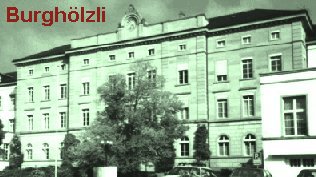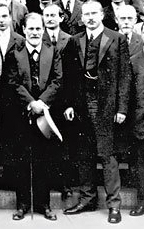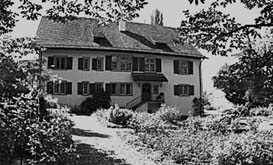Carl Jung Resources > Biography
Carl Gustav Jung (1875-1961) had a significant contribution to the psychoanalytical movement and is generally considered as the prototype of the dissident through the impact of his scission and the amplification of the movement he created in his turn.
In 1902-1903 he attended a traineeship in Paris with Pierre Janet, and then returned to Zurich and he was called senior physician at Burgholzli. It was in this context that Jung was introduced to Freud in 1907. Freud would be seduced by the prestige and personality of Jung and would soon see in him the spiritual son that could ensure the survival of psychoanalysis, so much so as Jung was not Jewish.
Jung had a swift ascension in the hierarchy of psychoanalysis. He became the editor of Jahrbuch. In 1909, he traveled with Freud to the United States and in 1910 he became the first president o the International Psychoanalytic Association. The reluctance of Jung towards the Freudian theory referred to the role of sexuality in the psychic development. In fact, Jung never completely embraced the sexual theory of Freud. Since 1912 he became more and more distant in his writings, which would cause a scission materialized in 1913 by his resignation from all the positions he already held.
By abandoning the meanders of psychosexuality, Jung would establish himself in the fields of spirituality and esoteric science. The aim of his psychology - called analytical to differentiate it from Freud's psychoanalysis - is the process of individuation, meaning the realization of the psychical wholeness or of Jung's concept of the Self (the union of the consciousness and unconscious).Jung also conceived many new psychological concepts such as the archetypes, the collective unconscious, the anima/animus and shadow, etc.Regarding the method of dream interpretation, Jung introduces t he method of amplification, illustrated in his works, such as P sychology and Alchemy.Notes: 2. To consult the bibliography of Jung See also: |
©AROPA, 2025.


